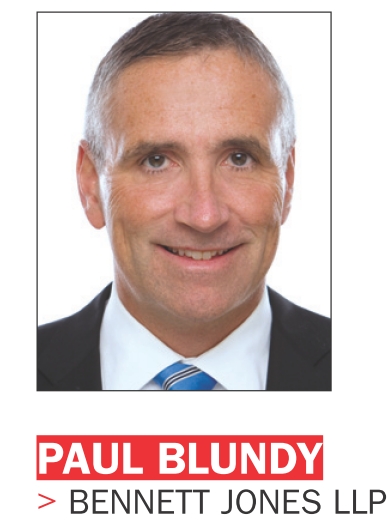Financing model has yet to reach the Canadian market, but interest abounds
By Sandra Rubin
Any fund manager these days would love to have infrastructure and public-private partnerships (P3s) among their asset classes. With all that stable, government-backed cash flow, who can blame them? The problem is, not every fund can afford it.
Getting a piece of a multi-million- or even multi-billion-dollar government infrastructure project involves heavy upfront resources and bid costs, and only one in three bids gets the nod. That's too rich for all except the supersized pension funds or investment pools.
But the government in the UK is looking at a whole new model of P3s, dubbed PF2, that would open a piece of the action to smaller players -- and the initiative has begun to attract attention in Canada.
Under the proposed new policy, which has gone through the consultation process and is moving towards implementation, the Treasury department automatically becomes a minority equity investor in all public-private infrastructure projects.
The government has also signaled it intends to put more money towards upfront costs and shift the focus of the rest of the financing from bank loans to institutional investment. In the process, it's adding a tranche of third-party equity after the preferred-bidder stage, which will be awarded through funding competitions. "The government is trying to create an auction for financing, basically separating the financing from the deal structuring," says Paul Blundy, leader of the public infrastructure projects practice at Bennett Jones LLP.
"So once the deal is structured and the terms of the financing have gelled, it will take the fully baked deal to the market and have competitive bidding – or an auction – for the deal at that stage. That was designed to get the overall cost of financing down and make sure the benefit of lower financing flowed through to the government sector."
Blundy says the initiative has lot of people talking. "That specific idea hasn't been embraced yet in Canada, but it's one that's being discussed, and I'm sure the investor community would be interested in that to the extent they can reduce their transaction costs. It's a real problem for a small fund to participate in a bid process. They want fully baked product to come to market, and I think that fully baked product would result in better pricing."
The cost of equity financing has not been a big issue in Canada, says Derron Bain, vice-president of Concert Infrastructure, adding he has questions about how well such a plan would work in Canada. "These smaller pension plans typically don't have the resources and expertise on their own to assess the risk and to make investments in these types of projects," says Bain, who manages the Concert infrastructure fund on behalf of 10 BC-based pension funds. "I'm not sure how PF2 changes that dynamic."
Gregory Southam, a partner in the capital markets and infrastructure practices at Davies Ward Phillips & Vineberg LLP, says that, as things stand now, the Canadian market is healthy -- despite the loss of a couple of European players like Bilfinger Berger, which recently pulled out of the Canadian market, closing its Canadian office and selling off its interests in Canadian projects.
"We are a market that has shown there are lots of projects to bid on, the procurement is relatively short and will result in projects," says Southam. "Yes, the frothiness has dissipated a little over the last couple of years, but this is still a very robust and stable market."
Sandra Rubin is a legal-affairs writer and regular contributor to Lexpert.
By Sandra Rubin
Any fund manager these days would love to have infrastructure and public-private partnerships (P3s) among their asset classes. With all that stable, government-backed cash flow, who can blame them? The problem is, not every fund can afford it.
Getting a piece of a multi-million- or even multi-billion-dollar government infrastructure project involves heavy upfront resources and bid costs, and only one in three bids gets the nod. That's too rich for all except the supersized pension funds or investment pools.
But the government in the UK is looking at a whole new model of P3s, dubbed PF2, that would open a piece of the action to smaller players -- and the initiative has begun to attract attention in Canada.
Under the proposed new policy, which has gone through the consultation process and is moving towards implementation, the Treasury department automatically becomes a minority equity investor in all public-private infrastructure projects.
The government has also signaled it intends to put more money towards upfront costs and shift the focus of the rest of the financing from bank loans to institutional investment. In the process, it's adding a tranche of third-party equity after the preferred-bidder stage, which will be awarded through funding competitions. "The government is trying to create an auction for financing, basically separating the financing from the deal structuring," says Paul Blundy, leader of the public infrastructure projects practice at Bennett Jones LLP.
"So once the deal is structured and the terms of the financing have gelled, it will take the fully baked deal to the market and have competitive bidding – or an auction – for the deal at that stage. That was designed to get the overall cost of financing down and make sure the benefit of lower financing flowed through to the government sector."
Blundy says the initiative has lot of people talking. "That specific idea hasn't been embraced yet in Canada, but it's one that's being discussed, and I'm sure the investor community would be interested in that to the extent they can reduce their transaction costs. It's a real problem for a small fund to participate in a bid process. They want fully baked product to come to market, and I think that fully baked product would result in better pricing."
The cost of equity financing has not been a big issue in Canada, says Derron Bain, vice-president of Concert Infrastructure, adding he has questions about how well such a plan would work in Canada. "These smaller pension plans typically don't have the resources and expertise on their own to assess the risk and to make investments in these types of projects," says Bain, who manages the Concert infrastructure fund on behalf of 10 BC-based pension funds. "I'm not sure how PF2 changes that dynamic."
Gregory Southam, a partner in the capital markets and infrastructure practices at Davies Ward Phillips & Vineberg LLP, says that, as things stand now, the Canadian market is healthy -- despite the loss of a couple of European players like Bilfinger Berger, which recently pulled out of the Canadian market, closing its Canadian office and selling off its interests in Canadian projects.
"We are a market that has shown there are lots of projects to bid on, the procurement is relatively short and will result in projects," says Southam. "Yes, the frothiness has dissipated a little over the last couple of years, but this is still a very robust and stable market."
Sandra Rubin is a legal-affairs writer and regular contributor to Lexpert.
Lawyer(s)
Gregory G. Southam
Firm(s)
Davies Ward Phillips & Vineberg LLP
Bennett Jones LLP





